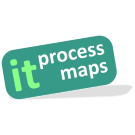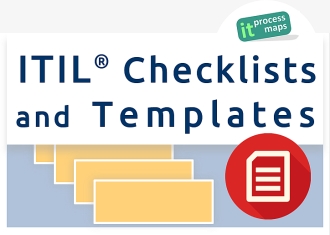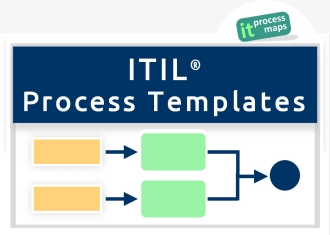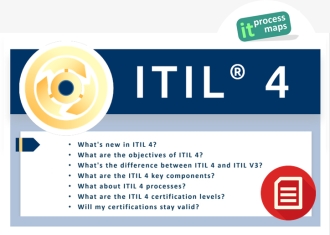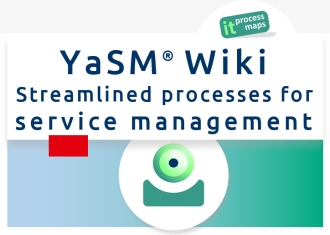Checklist Problem Record: Difference between revisions
mNo edit summary |
No edit summary |
||
| (10 intermediate revisions by the same user not shown) | |||
| Line 1: | Line 1: | ||
< | <itpmch><title>Checklist Problem Record | IT Process Wiki</title> | ||
<meta name="keywords" content="problem record, itil problem record, problem record itil, problem record template, problem record checklist" /> | |||
<meta name="description" content="The 'Problem Record' contains all details of a Problem, documenting the history of the Problem from detection to closure. A 'Problem' is defined as a cause of one or more incidents; the cause is not usually known at the time a Problem Record is created." /> | |||
<meta property="og:url" content="https://wiki.en.it-processmaps.com/index.php/Checklist_Problem_Record" /> | |||
<meta property="og:title" content="Checklist Problem Record | IT Process Wiki" /> | |||
<meta property="og:description" content="The Problem Record contains all details of a Problem, documenting the history of the Problem from detection to closure." /> | |||
<meta property="og:site_name" content="IT Process Wiki - the ITIL® Wiki"> | |||
<meta property="og:type" content="article" /> | |||
<meta property="article:publisher" content="https://www.facebook.com/itprocessmaps" /> | |||
<meta property="fb:admins" content="100002035253209" /> | |||
<meta property="fb:admins" content="100002592864414" /> | |||
<meta property="og:image" content="https://wiki.en.it-processmaps.com/images/c/c2/Problem-record-itil.jpg" /> | |||
<meta property="og:image:width" content="1200" /> | |||
<meta property="og:image:height" content="600" /> | |||
<meta property="og:image" content="https://wiki.en.it-processmaps.com/images/7/77/Problem-record.jpg" /> | |||
<meta property="og:image:width" content="620" /> | |||
<meta property="og:image:height" content="848" /> | |||
<link href="https://plus.google.com/108613479011811316823/posts" rel="publisher" /> | |||
</itpmch> | |||
<imagemap> | <imagemap> | ||
Image:ITIL-Wiki-de-es.jpg|DE - ES - Checklist Problem Record - Template Problem Record| | Image:ITIL-Wiki-de-es.jpg|right|DE - ES - Checklist Problem Record - Template Problem Record|163px | ||
rect 0 | rect 81 0 114 36 [https://wiki.de.it-processmaps.com/index.php/Checkliste_Problem_Record diese Seite auf Deutsch] | ||
rect | rect 115 0 163 36 [https://wiki.es.it-processmaps.com/index.php/Lista_de_control_-_Registro_de_Problema esta página en español] | ||
desc none | desc none | ||
</imagemap> | </imagemap> | ||
<br style="clear:both;"/> | <br style="clear:both;"/> | ||
''' | '''<span id="Definition">Definition:</span>''' <html><span id="md-webpage-description" itemprop="description">The <i>Problem Record</i> contains all details of a Problem, documenting the history of the Problem from detection to closure. A 'Problem' is defined as a cause of one or more incidents; the cause is not usually known at the time a Problem Record is created.</span></html> | ||
''' | '''ITIL Process''': [[ITIL Service Operation|ITIL Service Operation]] - [[Problem Management]] | ||
''' | '''ITIL 4 Practice''': Problem management | ||
'''Checklist Category:''' [[ITIL-Checklists#ITIL_Templates|ITIL Templates]] | |||
<p> </p> | <p> </p> | ||
__TOC__ | |||
==Problem Record - Contents== | |||
[[image:Problem-record.jpg|link=https://wiki.en.it-processmaps.com/index.php/File:Problem-record.jpg|thumb|438px|right|alt=ITIL Problem Record|Fig. 1: [[media:Problem-record.jpg|ITIL Problem Record: Definition and information flow (view full size)]]]] | |||
''A Problem Record typically contains the following information:'' | |||
<p> </p> | <p> </p> | ||
====Unique ID==== | |||
(Unique ID of the [[Problem Management#Problem|Problem]] - usually allocated automatically by the system) | |||
====Date and time of detection==== | |||
====Problem owner==== | |||
====Description of symptoms==== | |||
====Affected users/ business areas==== | |||
====Affected service(s)==== | |||
====Problem priority==== | |||
Priority, a function of the following components: | |||
# Urgency (available time until the resolution of the Problem) | |||
# Impact (damage caused or potential damage to the business or IT infrastructure) | |||
# Priority (for example expressed in codes like "Critical", "High", "Medium", "Low", "Very Low"): The result from the combination of urgency and impact | |||
(Note: Prioritization of Problems should follow the same rules as the prioritization of Incidents; for further information, refer to the checklist [[Checklist Incident Priority|Incident Prioritization Guideline]]) | |||
====Relationships to CIs==== | |||
(Relationships to [[Checklist CMS CMDB#Configuration Model and CI Types |Configuration Items (CIs)]]) | |||
====Problem category==== | |||
Problem category, usually selected from a category-tree according to the following example: | |||
# Hardware error | |||
## Server A | |||
### Component x | |||
#### Symptom a | |||
#### Symptom b | |||
### Component y | |||
### … | |||
## Server B | |||
## … | |||
# Software error | |||
## System A | |||
## System B | |||
## … | |||
# Network error | |||
# ... | |||
(Note: Problem categories should be harmonized with Incident categories to support matching between Incidents and Problems) | |||
====Links to related Problem Records==== | |||
(Links to related Problem Records - if there are other outstanding Problems related to this one) | |||
====Links to related Incident Records==== | |||
(Links to related [[Incident Management#Incident-Record|Incident Records]] - if outstanding Incidents exist, whose solution depends on the solution of this Problem) | |||
====Links to related Known Errors and Workarounds==== | |||
(Links to [[Problem Management#Known Error|Known Errors]] and [[Problem Management#Workaround|Workarounds]] - if Known Errors and Workarounds related to the Problem have been identified) | |||
====Links to RFCs/ Change Records==== | |||
(Links to [[Change Management#ITIL-RFC|RFCs]]/ [[Change Management#Change-Record|Change Records]] associated with the solution of the Problem) | |||
====Problem status change history==== | |||
# Date and time | |||
# Person in charge | |||
# Reason for status change | |||
# New Problem status | |||
====Activity log==== | |||
Activity log/ Tasks assigned to the Problem: Most service desk systems allow maintaining a simple log of steps carried out to resolve the Problem. Some systems, however, also provide the means to assign "Tasks" to Problems. Akin to the Problems they are assigned to, Tasks are typically characterized by properties like name, description, owner, priority, etc. and contain a status history and activity log of their own. | |||
<p> </p> | <p> </p> | ||
==Notes== | |||
<html>Is based on: Checklist 'Problem Record' from the <a href="https://en.it-processmaps.com/products/itil-process-map.html" title="The ITIL Process Map" class="external text">ITIL Process Map</a></p> | |||
<p>By:  Stefan Kempter <a rel="author" href="https://www.linkedin.com/in/stefankempter"><img style="margin:0px 0px 0px 0px;" src="/images/bookmarking/linkedin.png" width="16" height="16" title="By: Stefan Kempter | Profile on LinkedIn" alt="Author: Stefan Kempter, IT Process Maps GbR" /></a>, IT Process Maps.</p> | |||
# | |||
# | |||
<p> </p> | <p> </p> | ||
<p><small> | |||
<span itemprop="breadcrumb" itemscope itemtype="http://schema.org/BreadcrumbList"> | |||
<span itemprop="itemListElement" itemscope itemtype="http://schema.org/ListItem"> | |||
<a itemprop="item" href="https://wiki.en.it-processmaps.com/index.php/Checklist_Problem_Record#Definition"> <span itemprop="name">Definition</span></a><meta itemprop="position" content="1" /></span> › | |||
<span itemprop="itemListElement" itemscope itemtype="http://schema.org/ListItem"> | |||
<a itemprop="item" href="https://wiki.en.it-processmaps.com/index.php/Checklist_Problem_Record#Problem_Record_-_Contents"> <span itemprop="name">Problem Record: Contents</span></a><meta itemprop="position" content="2" /></span> › | |||
<span itemprop="itemListElement" itemscope itemtype="http://schema.org/ListItem"> | |||
<a itemprop="item" href="https://wiki.en.it-processmaps.com/index.php/Checklist_Problem_Record#Problem_priority"> <span itemprop="name">Priority</span></a><meta itemprop="position" content="3" /></span> › | |||
<span itemprop="itemListElement" itemscope itemtype="http://schema.org/ListItem"> | |||
<a itemprop="item" href="https://wiki.en.it-processmaps.com/index.php/Checklist_Problem_Record#Problem_category"> <span itemprop="name">Category</span></a> | |||
<meta itemprop="position" content="4" /></span> | |||
</span> | |||
</small></p> | |||
<!-- define schema.org/WebPage --> <span itemscope itemtype="https://schema.org/WebPage" itemref="md-webpage-description"> | |||
<meta itemprop="name Headline" content="Checklist Problem Record" /> | |||
<meta itemprop="alternativeHeadline" content="Problem Record" /> | |||
<link itemprop="url" href="https://wiki.en.it-processmaps.com/index.php/Checklist_Problem_Record" /> | |||
<link itemprop="primaryImageOfPage" href="https://wiki.en.it-processmaps.com/images/7/77/Problem-record.jpg" /> | |||
<meta itemprop="isBasedOnUrl" content="https://en.it-processmaps.com/products/itil-process-map.html" /> | |||
<link itemprop="isPartOf" href="https://wiki.en.it-processmaps.com/index.php/ITIL-Checklists#ITIL_Templates" /> | |||
<meta itemprop="inLanguage" content="en" /> | |||
<link itemprop="citation" href="https://wiki.de.it-processmaps.com/index.php/Checkliste_Problem_Record" /> | |||
<link itemprop="citation" href="https://wiki.es.it-processmaps.com/index.php/Lista_de_control_-_Registro_de_Problema" /> | |||
<link itemprop="author" href="https://www.linkedin.com/in/stefankempter" /> | |||
<meta itemprop="author" content="Stefan Kempter" /> | |||
<meta itemprop="creator copyrightHolder publisher" content="IT Process Maps" /> | |||
</span><p></html> | |||
<!-- This page is assigned to the following categories: --> | <!-- This page is assigned to the following categories: --> | ||
[[Category:Checklist (ITIL)|Problem Record]] | [[Category:Checklist (ITIL)|Problem Record]] | ||
[[Category:Template (ITIL)|Problem Record]] | |||
[[Category:Service Operation|Problem Record]] | [[Category:Service Operation|Problem Record]] | ||
[[Category: | [[Category:Problem Management|Problem Record]] | ||
<!-- --- --> | <!-- --- --> | ||
Latest revision as of 12:09, 31 December 2023

Definition: The Problem Record contains all details of a Problem, documenting the history of the Problem from detection to closure. A 'Problem' is defined as a cause of one or more incidents; the cause is not usually known at the time a Problem Record is created.
ITIL Process: ITIL Service Operation - Problem Management
ITIL 4 Practice: Problem management
Checklist Category: ITIL Templates
Problem Record - Contents
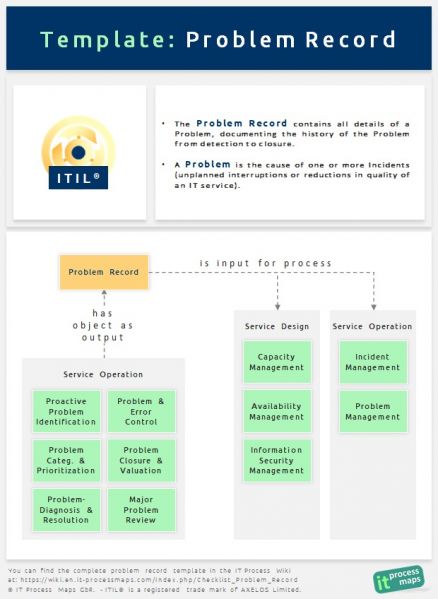
A Problem Record typically contains the following information:
Unique ID
(Unique ID of the Problem - usually allocated automatically by the system)
Date and time of detection
Problem owner
Description of symptoms
Affected users/ business areas
Affected service(s)
Problem priority
Priority, a function of the following components:
- Urgency (available time until the resolution of the Problem)
- Impact (damage caused or potential damage to the business or IT infrastructure)
- Priority (for example expressed in codes like "Critical", "High", "Medium", "Low", "Very Low"): The result from the combination of urgency and impact
(Note: Prioritization of Problems should follow the same rules as the prioritization of Incidents; for further information, refer to the checklist Incident Prioritization Guideline)
Relationships to CIs
(Relationships to Configuration Items (CIs))
Problem category
Problem category, usually selected from a category-tree according to the following example:
- Hardware error
- Server A
- Component x
- Symptom a
- Symptom b
- Component y
- …
- Component x
- Server B
- …
- Server A
- Software error
- System A
- System B
- …
- Network error
- ...
(Note: Problem categories should be harmonized with Incident categories to support matching between Incidents and Problems)
(Links to related Problem Records - if there are other outstanding Problems related to this one)
(Links to related Incident Records - if outstanding Incidents exist, whose solution depends on the solution of this Problem)
(Links to Known Errors and Workarounds - if Known Errors and Workarounds related to the Problem have been identified)
Links to RFCs/ Change Records
(Links to RFCs/ Change Records associated with the solution of the Problem)
Problem status change history
- Date and time
- Person in charge
- Reason for status change
- New Problem status
Activity log
Activity log/ Tasks assigned to the Problem: Most service desk systems allow maintaining a simple log of steps carried out to resolve the Problem. Some systems, however, also provide the means to assign "Tasks" to Problems. Akin to the Problems they are assigned to, Tasks are typically characterized by properties like name, description, owner, priority, etc. and contain a status history and activity log of their own.
Notes
Is based on: Checklist 'Problem Record' from the ITIL Process Map
By: Stefan Kempter ![]() , IT Process Maps.
, IT Process Maps.
Definition › Problem Record: Contents › Priority › Category
